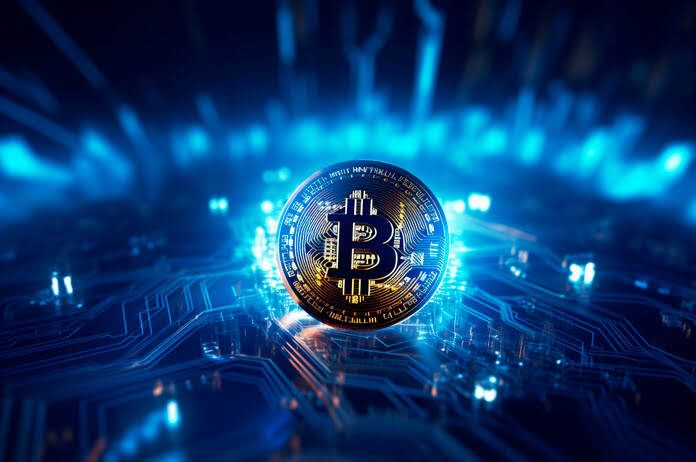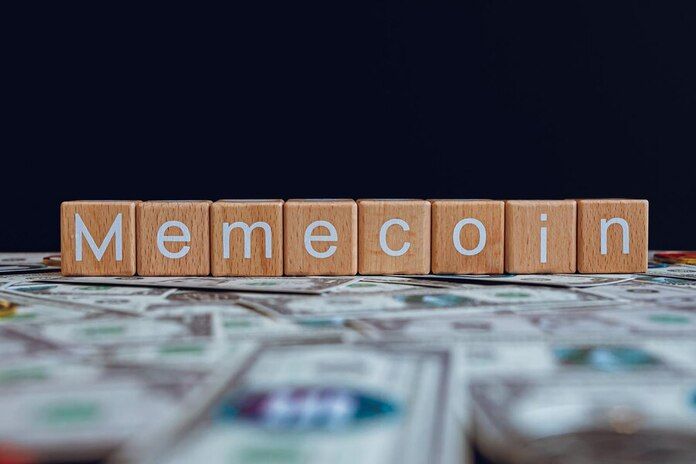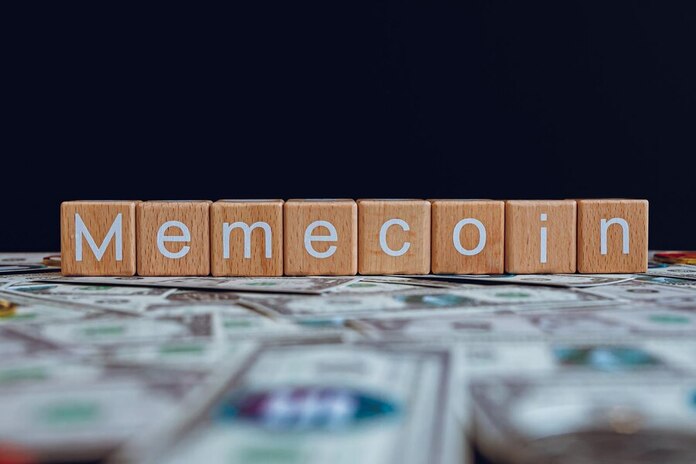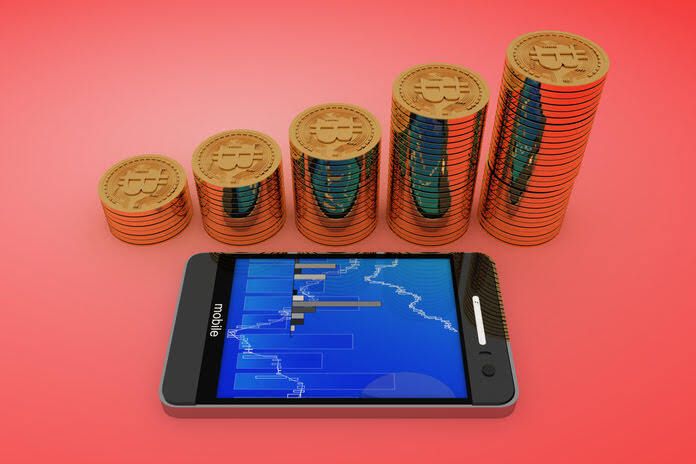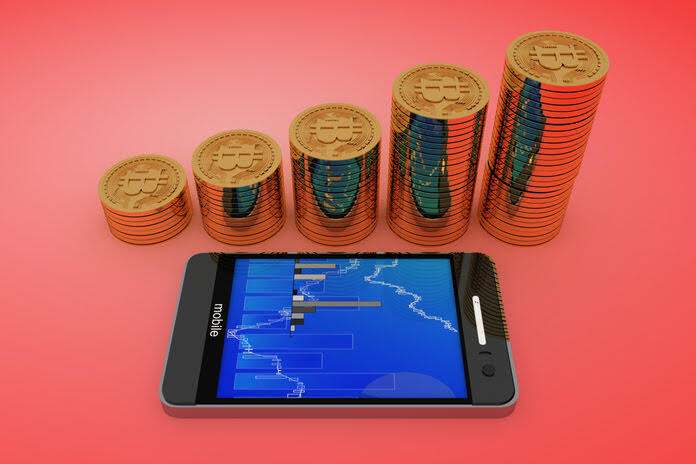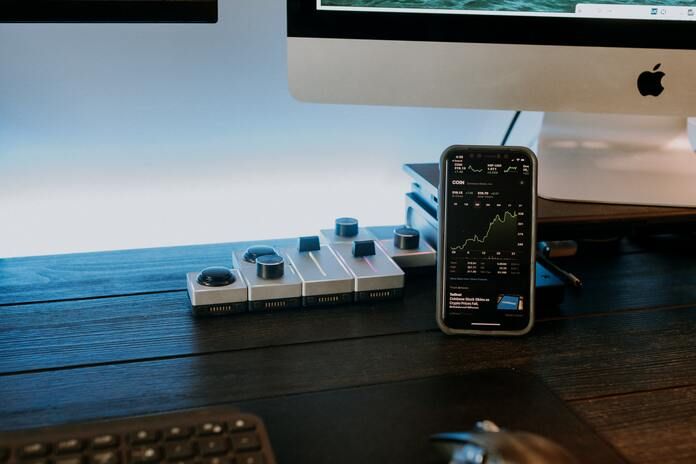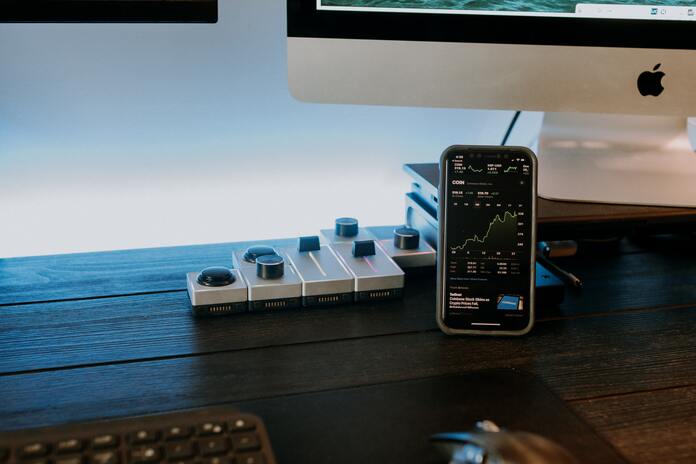Bitcoin’s Tech Stock Correlation Hits New High Since August

Bitcoin (BTC-USD) found itself grouped with other speculative investments during the run-up of the Federal Reserve’s last tightening cycle, declining on expectations that higher interest rates would dampen the risk appetite. Now, with optimism growing again that borrowing costs could soon be heading lower, proponents of the biggest cryptocurrency argue that it’s more akin to high-growth assets such as shares of technology companies.
The token has been trading as such recently. The 90-day correlation coefficient of the digital currency and the tech-heavy Nasdaq 100 index reached 0.46 this week, marking the highest level since late August. A coefficient of 1 indicates the assets are moving in lockstep, while minus 1 would show they’re moving in opposite directions. After the Fed began raising its target rate on overnight loans between banks in early 2022, the correlation jumped to more than 0.8, the highest since the digital asset burst onto the mainstream consciousness.
Joshua Lim, co-founder of trading firm Arbelos Markets, remarked that individuals are redirecting their attention towards cryptocurrency as a growth asset or an asset that embodies network value. He elaborated that its capacity as a technology and means of transferring value implies that it will exhibit a stronger correlation with other assets that are also characterized by growth, such as the Nasdaq and technology equities.
Bitcoin proponents have persistently promoted the coin as an uncorrelated asset, one liberated from governmental influence and resistant to external pressures or influences. Introduced to the public in 2008 by an individual or group known as Satoshi Nakamoto, Bitcoin was conceived to establish a decentralized currency independent of governmental and central bank control. Throughout its evolution, it has been heralded as a digital equivalent to gold, an inflation hedge, and a repository of value. However, the price volatility of Bitcoin has undermined several of these narratives. The approval of US exchange-traded funds earlier this year to hold Bitcoin directly has opened the token up to a new tier of investors.
Lim highlighted that various factors, such as the introduction of US ETFs, Bitcoin’s record-breaking surge in March, and its blockchain halving in April, served as significant incentives for traditional investors to take notice of the cryptocurrency asset class and begin investing in it. However, with these catalysts now in the past, attention has shifted more towards the broader macroeconomic landscape.
Bitcoin surged after the ETFs went live in January, reaching a record of almost $74,000 in March, before paring gains as demand for the investment vehicles began to cool. The token rose about 1.4% on Friday to around $66,200 and is up almost 10% this week. Bitcoin has jumped about 58% this year, compared with an 11% increase in the Nasdaq 100.
Lim highlighted that various factors, such as the introduction of US ETFs, Bitcoin’s record-breaking surge in March, and its blockchain halving in April, served as significant incentives for traditional investors to take notice of the cryptocurrency asset class and begin investing in it. However, with these catalysts now in the past, attention has shifted more towards the broader macroeconomic landscape.
Wednesday’s data release indicated a moderation in underlying US inflation during April, marking the first decline in six months. This development aligns with the direction desired by Federal Reserve officials before considering rate reductions. Specifically, the core consumer price index, which excludes volatile food and energy costs, increased by 0.3% from March, following three consecutive months of readings that exceeded expectations.
Despite this, several Federal Reserve officials emphasized on Thursday the importance of maintaining higher borrowing costs for an extended period while awaiting further evidence of inflation easing. This stance suggests that they are not inclined to hastily reduce rates.
Lim expressed the view that if the Fed were to decrease rates, it would generally have a positive impact on risk assets. They added that such a scenario would also be favorable for cryptocurrencies.
CCData observed that despite increased focus on the Federal Reserve among crypto investors, Bitcoin has demonstrated consistent growth and resilience since the launch of US ETFs, according to Winterflood.
Winterflood remarked that it would be intriguing to observe the consequences if the Fed indeed reduces rates in the upcoming months. They pondered whether Bitcoin might replicate its past behavior as a perceived riskier asset, or if it would transition into merely an alternative asset embraced by conventional markets.
Featured Image: Freepik
